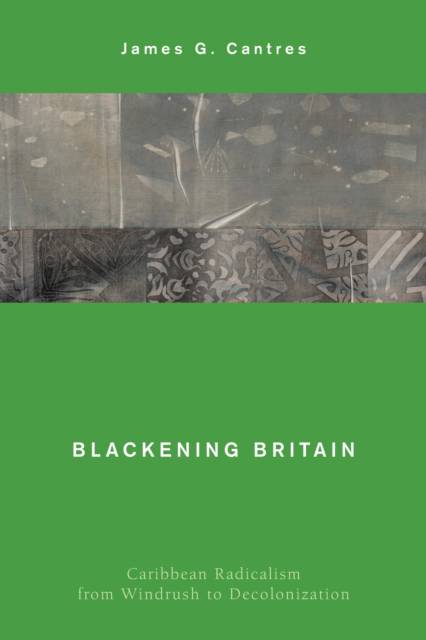
- Afhalen na 1 uur in een winkel met voorraad
- Gratis thuislevering in België vanaf € 30
- Ruim aanbod met 7 miljoen producten
- Afhalen na 1 uur in een winkel met voorraad
- Gratis thuislevering in België vanaf € 30
- Ruim aanbod met 7 miljoen producten
Zoeken
€ 64,45
+ 128 punten
Uitvoering
Omschrijving
Covering the period from the interwar years through the arrival of the steamship SS Empire Windrush from Jamaica in 1948 and culminating in the period of decolonization in the British Caribbean by the early 1970s, this project situates the development of networks of communication, categories of identification, and Caribbean radical politics both in the metropole and abroad. Blackening Britain explores how articulations of Caribbean identity formation corresponded to the following themes: organic collective action, political mobilization, cultural expressions of shared consciousness, and novel patterns of communication. Blackening Britain shows how colonial migrants developed tools of resistance in the imperial center predicated on their racialized consciousness that emerged from their experiences of alienation and discrimination in Britain.
This book also interrogates the ways in which prominent West Indian activists, intellectuals, political actors, and artists conceived of their relationship to Britain. Ultimately, this work shows a move away from British identity and a radical, revolutionary consciousness rooted in the West Indian background and forged in the contentious space of metropolitan Britain.
This book also interrogates the ways in which prominent West Indian activists, intellectuals, political actors, and artists conceived of their relationship to Britain. Ultimately, this work shows a move away from British identity and a radical, revolutionary consciousness rooted in the West Indian background and forged in the contentious space of metropolitan Britain.
Specificaties
Betrokkenen
- Auteur(s):
- Uitgeverij:
Inhoud
- Aantal bladzijden:
- 270
- Taal:
- Engels
- Reeks:
Eigenschappen
- Productcode (EAN):
- 9781538148402
- Verschijningsdatum:
- 2/09/2022
- Uitvoering:
- Paperback
- Formaat:
- Trade paperback (VS)
- Afmetingen:
- 152 mm x 229 mm
- Gewicht:
- 399 g

Alleen bij Standaard Boekhandel
+ 128 punten op je klantenkaart van Standaard Boekhandel
Beoordelingen
We publiceren alleen reviews die voldoen aan de voorwaarden voor reviews. Bekijk onze voorwaarden voor reviews.











